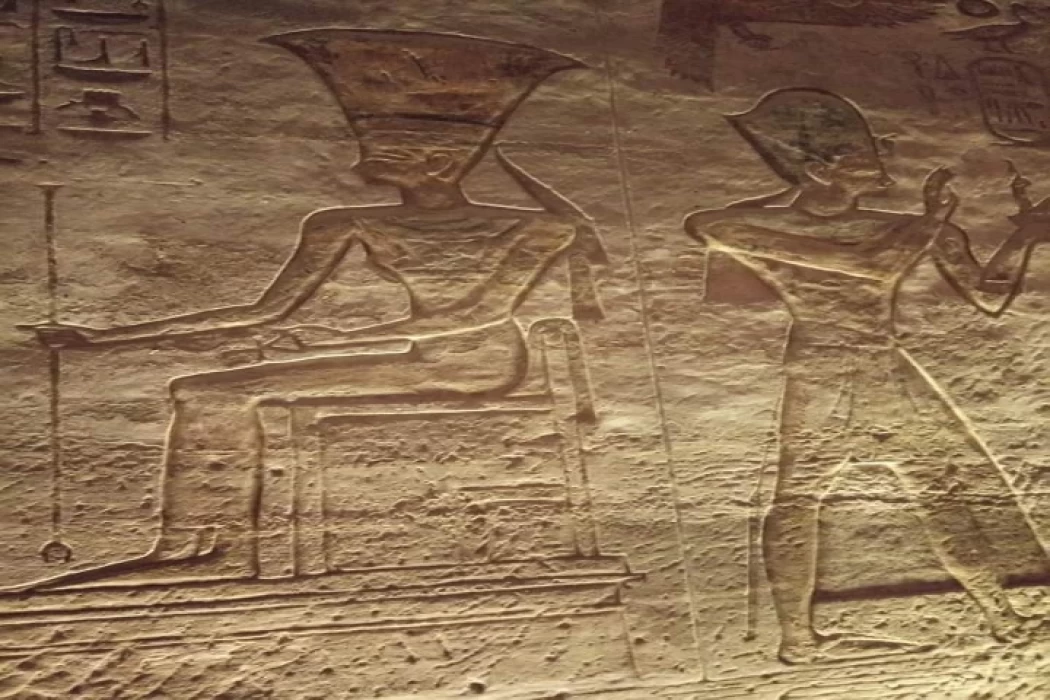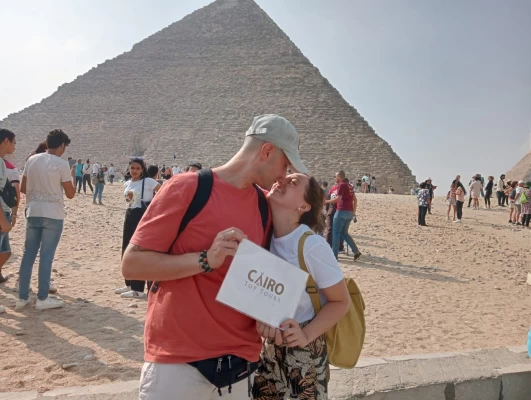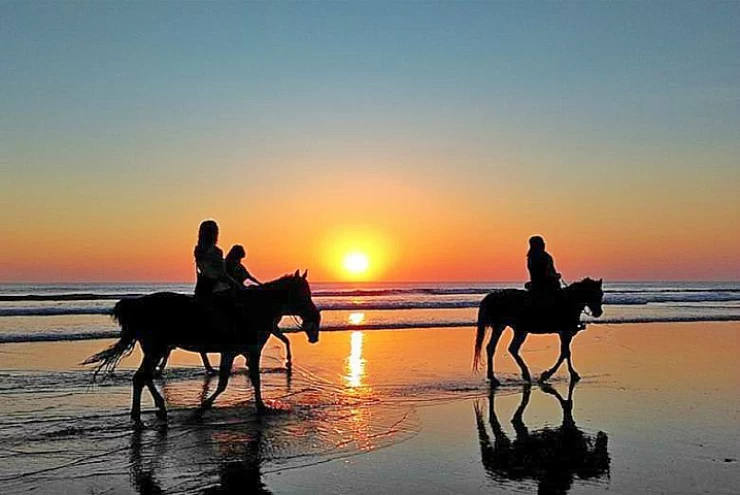
Dea Anuket
Anuket (o Anukis, il suo nome greco) è una dea nubiana, rappresentata come una donna con una corona di piume o di canne, con uno scettro e il noto ankh della cultura egizia antica. Il suo nome significa "colei che abbraccia" ed era venerata a Sehel e a Elefantina.
Nei pressi della prima cateratta del Nilo, a partire dal Medio Impero, era venerata insieme ai suoi genitori, Khnum e Satis, come una triade sacra: la triade di Elefantina. Prima, però, era considerata la figlia del dio Amon Ra.
L'animale che la rappresentava era la gazzella, che simboleggiava delicatezza e tenerezza. Sotto questo aspetto, veniva rappresentata come la "madre del re", che allattava il faraone come una figura materna e protettiva.
Era conosciuta come la "dominatrice della Nubia". Era considerata la dea della lussuria, perché essendo associata al Nilo, rappresentava la fecondazione della terra attraverso le inondazioni quando il fiume straripava.
Con il passare del tempo e l'incontro di culture diverse, fu identificata con la dea Iside a Dendera e a File e in seguito fu persino collegata a Nefti.
Il centro principale del culto di Anukis, così come lo conosciamo oggi, era il tempio sull'isola di Sehel, anche se era venerata in tutta la Nubia, a Elefantina, File, Komir, Dendera e Deir el-Medina.
Ogni anno, la festa a lei dedicata si svolgeva il 7° giorno del mese del Dio Thoth. Era il momento che coincideva con l'inondazione del fiume Nilo. In questi festeggiamenti, era consuetudine che la gente lasciasse come offerta oro, gioielli e oggetti preziosi, che venivano gettati nell'acqua in segno di gratitudine per la fertilità dei campi.
Parte dell'usanza comprendeva anche la gastronomia. In questi giorni era possibile mangiare alcuni tipi di pesce che erano vietati durante il resto dell'anno.
Scegli il tuo trio dai Tour di Lusso in Egitto e unisciti a un'avventura affascinante nella grande storia egiziana.
Anuket (or Anukis, her Greek name) is a Nubian goddess, represented as a lady with a crown of feathers or reeds, with a scepter, and the well-known ankh of Ancient Egyptian culture. Her name means "she who embraces", and she was venerated in Sehel and Elephantine.
The animal that represented her was the gazelle, which symbolized delicacy and tenderness. In this aspect, she was shown as the "mother of the king", suckling the pharaoh as a maternal and protective figure.
She was known as the "ruler of Nubia". She was considered the goddess of lust, because being associated with the Nile, she represented the fertilization of the land by flooding when the river overflowed.
The main center of worship of Anukis, as we know it to this day, was the temple on the island of Sehel, although she was venerated throughout Nubia, in Elephantine, File, Komir, Dendera, and Deir el-Medina.
Every year, the feast dedicated to her took place on the 7th day of the month of God Thoth. It was the moment that coincided with the flooding of the Nile River. In these festivities, it was customary for people to leave as an offering gold, jewels, and precious objects, which were thrown into the water in gratitude for the fertility of the fields.
Part of the custom included gastronomy. On these days, it was possible to eat certain types of fish that were forbidden during the rest of the year.
Religious rituals began with the Ankut festival, when the annual Nile floods began. People threw coins, gold, jewelry, and precious gifts into the river, crediting the water with giving life and the benefits of returning the wealth provided by its fertility to the goddess Ankut. Taboos held in several regions of Egypt against the consumption of certain fish, which were considered sacred, were lifted during this period, indicating that Nile fish species were idolized and used as part of major religious festival rituals.
Anuket's Triad at Elephantine
Like her mother, Satet, Anuket was considered the goddess of hunting animals. According to mythology, Anuket was part of the Elephantine Triad.
The ram-headed fertility deity Khnum, the battle goddess Satet from the Nile flood, and their daughter Anuket, the cataract goddess, made up this triad. Elephantine is situated near Aswan, Upper Egypt, which is on the border between Egypt and Nubia. It was a place of worship for the gods named above. There are other Nile arches in Nubia, which is now Sudan.
When the Nile flooded, the waters entered Egypt via Elephantine. History tells us that Anuket's father, Khnum, guarded and controlled the river's waters... By the 18th century, this place had become a center of worship for the three deities.
















